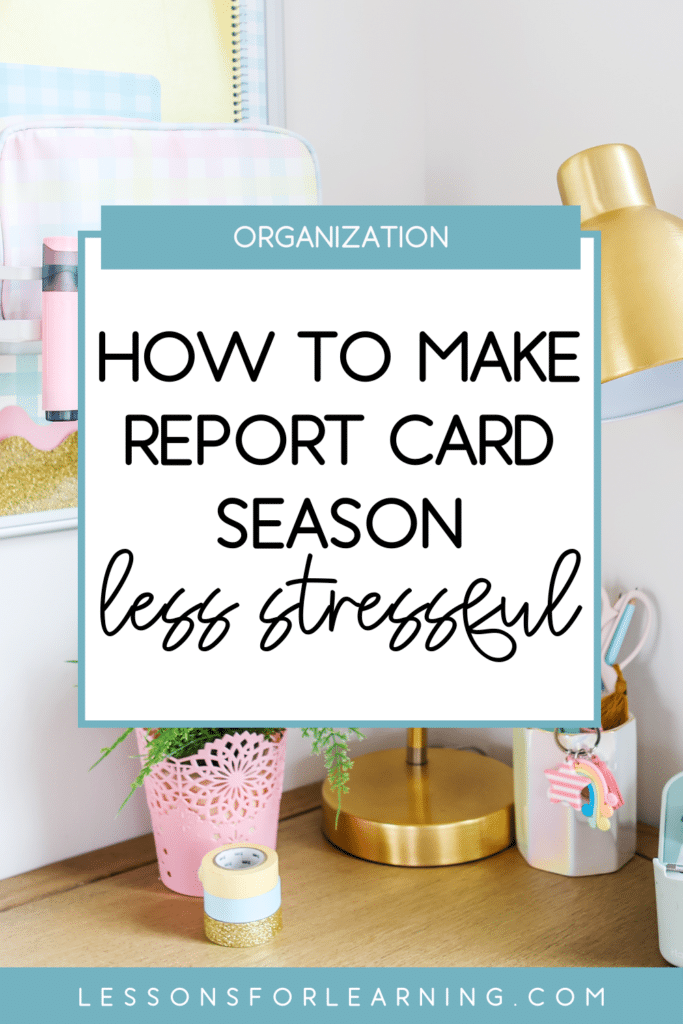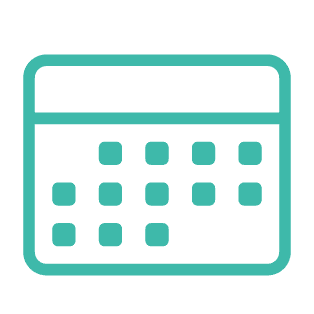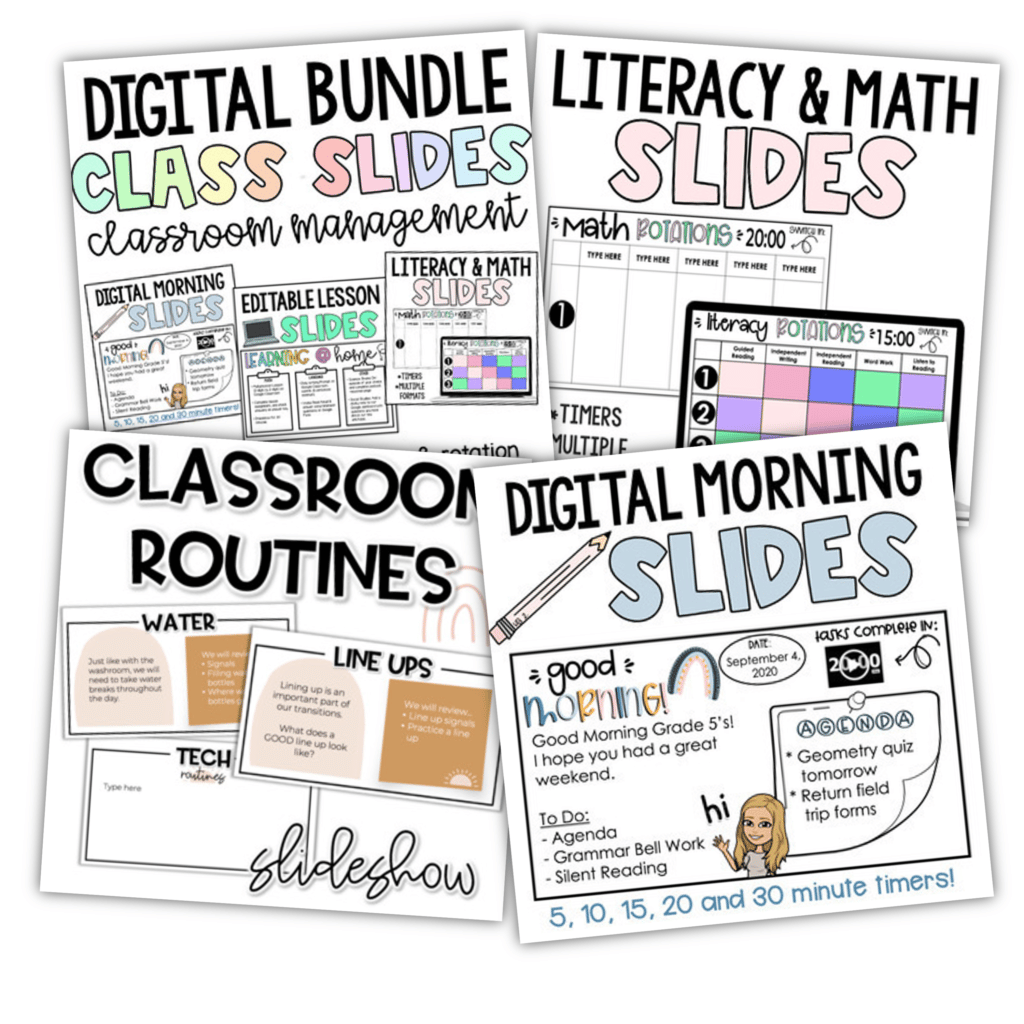The most stressful time of the year is one that happens more than once a year – report card season! The challenge is adding this task to the already-full plate that you have with day-to-day teaching responsibilities.
But there are some strategies that you can implement t ohelp make this feel easy! This blog post includes practical tips and strategies to do just that!
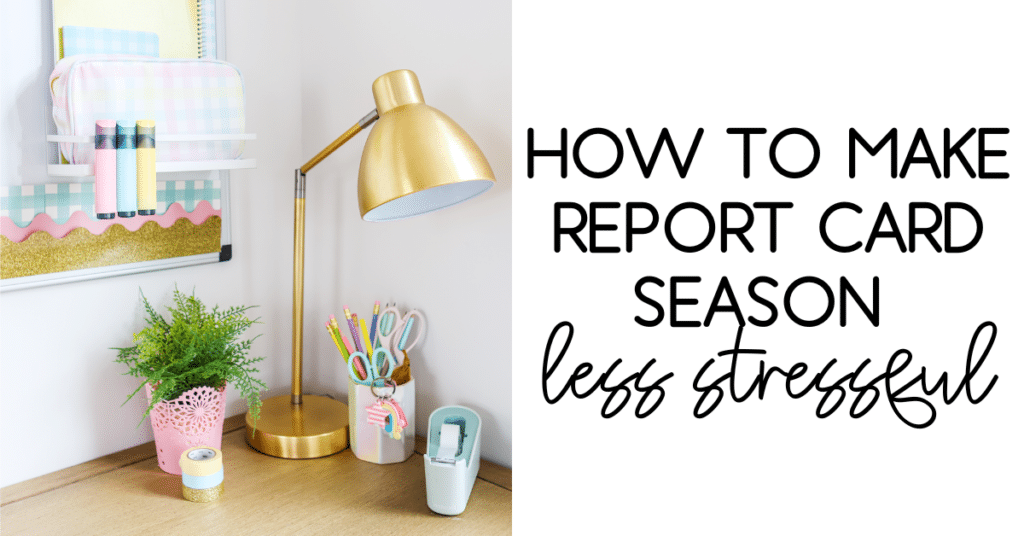
Start Early and Stay Organized
It’s never too early to start on report cards. This doesn’t mean jumping into writing but making sure you have the prep done for that task.
Begin gathering data (anecdotal notes, assessments) from the start of the term. If you have been slacking on this, look at your gradebook to see what’s missing and then put those assessments into your planner right away.
Then streamline your approach even more by reviewing whether these can become quicker or easier for you to grade. Is it a matter of recording anecdotal observations, completing quick oral conferences or check-ins with the students? Maybe it’s an exit pass or digital quiz (I love using Google Forms with the self-grading option.
Streamline Your Workflow
The key to making life easier is to have a plan! I can help with a report card checklist. Grab your free Guide To Stress-Free Report Card Writing here.
Using that checklist create a schedule. Print off or assemble a digital calendar and set due dates for all of the different tasks on your checklist. This will ensure you don’t end up writing 25 learning skills comments the night before they are due to the office.
To continue streamlining, batch similar tasks such as drafting all math comments at once. This approach also helps to maintain focus.
When you’re in the process of writing all of those comments, use templates to save time while ensuring comments are personalized – especially if this is your first time teaching a specific grade level.
These resources can help reduce your workload when writing comments.
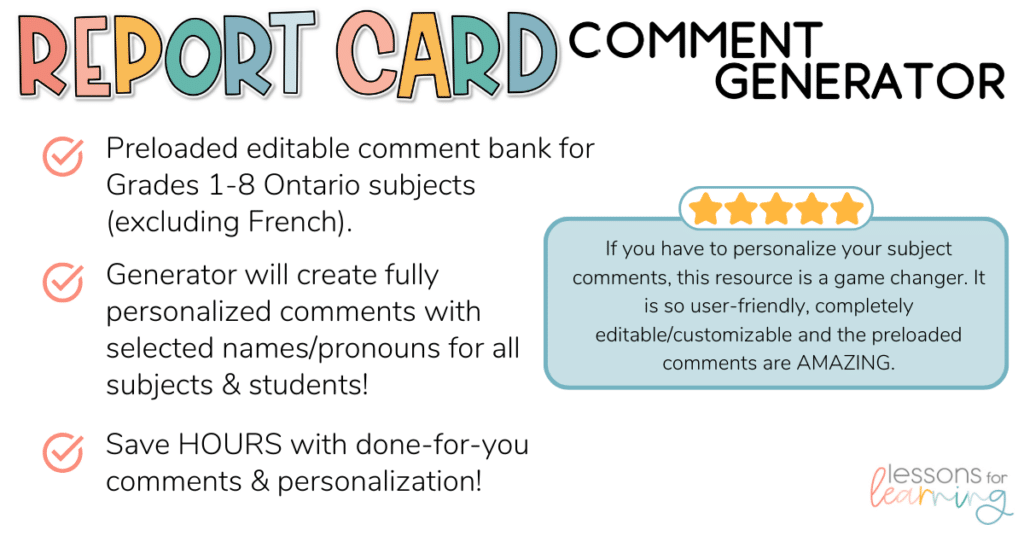
The Ontario Subject Comments (Grades 1-8) can take the stress and exhaustion out of writing personalized report card subject comments. With 150+ personalized, editable comments you can have well-written subject comments done in just a couple of minutes. These pre-loaded comment banks cover levels 1-4 for the Ontario curriculum, including Math, Science, Social Studies, Health, PE, Art, Music, Dance & Drama, as well as the 2024 updates to Language.
And there’s also an option for Learning Skills that can reduce your workload during this stressful time of year. This resource comes with a comment bank for ONTARIO Learning Skills geared towards Grade 4-8 (responsibility, independent work, organization, collaboration, initiative, and self-regulation), but you are able to edit the text in the cells to suit your class needs. So if you are a primary teacher, you can absolutely still use this with a couple of comment tweaks as needed.

Take Care of Yourself During the Process
If there’s one piece of advice I could go back to give myself in the first years of writing report cards, it’s to set boundaries. Dedicate focused time for report cards but stop at a reasonable hour. The calendar will help ensure you can keep these boundaries!
This also includes scheduling breaks to recharge and prevent burnout. Create little milestone “rewards” for yourself. For example, if you finish learning skills on Saturday, you will get Sunday off and go treat yourself to a manicure.
This doesn’t need to be at the end of everything (although it can be) but can also be after finishing big portions of the process like all subject comments, all learning skills, etc. This will help to keep you motivated to continue with report cards without turning it into absolute drudgery.
If you find yourself struggling, ask for support! Collaborate with colleagues or share comment-writing tips as a team.
If you have multiple teachers in your grade team, and you’ve been following similar long-range plans, there is no reason you should all be wasting time writing math comments! Divide and conquer. You can always edit and adjust if needed, but having the base will help.
And when all is said and done, remember you now have a template for success to get things done, which means the next time report cards roll around (and there’s always a next time!), you’ll have some practical strategies to help you sail through the season once more.
For more report card tips check out these posts:
- Ontario Learning Skills Sample Comments
- Tips for Successful Student-led Conferences
- 5 Teacher Grading Tips to Get Ahead
